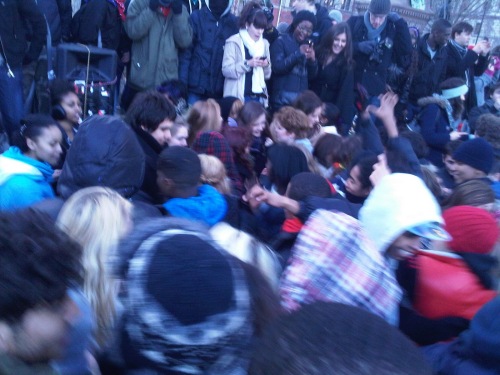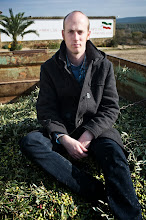Fight Back! and 'The Art of Protest' Seminar at UeL

So, I just finished editing this then.
http://www.bit.ly/fightbackUK
7 kettled editors, 43 writers (from a 15-year-old UK Uncut activist to Johann Hari to a rebel Lib Dem peer), 350 pages, £0.00 to download as a PDF - all telling the real story of the winter protests, and providing a theoretical and practical handbook for the next phase of the fight against Tory cuts.
We launched - softly - on Tuesday evening and have reached 1000 downloads already, never mind online reads, which are also available at the link above. A physical book and Kindle app will launch on 24 March 2011.

Here is the first of what will hopefully be several Fight Back! events, featuring four of its authors, the Associate Dean of the UeL Humanities School, and Dr Kode9 in his academic guise. All are welcome, please come along if you can!
The Art of Protest
A seminar to mark the launch of Fight Back!
2 March 2011, 14:00-17:00, University of East London
Papers:
Dan Hancox: "Pow! in Parliament Square: Riot music and the kettled generation"
Jesse Darling: "[Protest] Signs and the Signified: handmade propaganda in the age of the branded demographic"
Adam Harper: "The Art and Reality of Protest"
Respondents: Steve 'Kode9' Goodman, Andrew Blake
Chair: Jeremy Gilbert
Full details, directions, and biogs on the UeL website here. Facebook event page here if you like that kind of thing.



.jpg)







